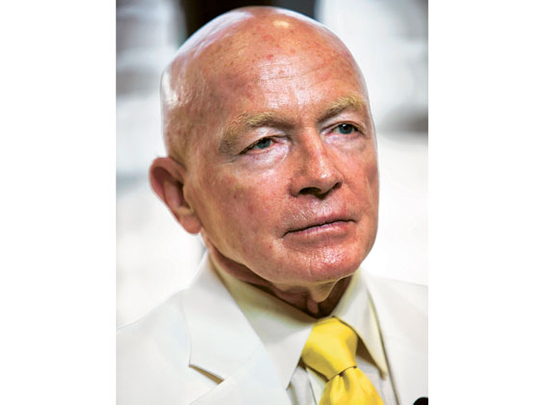
There will always be unforeseen factors and circumstances that might become catalysts for greater changes in the global landscape, as we have seen from the current unrests in the Middle East. No one knows what will happen in the future, but below are some of what I envision for the emerging markets landscape in the next decade.
Greater dominance in global economy
I believe that emerging stock markets could be much larger than they are today and in the next decade their combined value could exceed the combined value of the US, Japanese and European equity markets.
Emerging markets have come a long way since 1986, when the International Finance Corporation (IFC), a World Bank subsidiary, started to make efforts to promote capital market development in less developed countries. Since then, emerging countries have progressed from being simply low-cost manufacturing economies to growth-driven economies with a very strong consumer base.
The importance of domestic demand in emerging countries will play an even more important role in the future as growth in developed markets is expected to be much lower, fraught with fiscal challenges.
With emerging markets, growth in domestic consumption should be driven by, and hopefully sustained, in two ways: rising per capita income and, more importantly, the maturing of the young, working population who will be reaching the most productive years of their lives.
However, if governments fail to keep up with this new and rising middle-consumer class, e.g. through a lack of employment and high unproductive government spending that could in turn lead to inflation, this could lead to political instability, a persistent poverty trap and a widening gap between the rich and the poor.
Corporate governance
India had a hit to its stock market last November as a result of a number of scandals related to allegations of corruption.
The need for better corporate governance is a global phenomenon and is not exclusive to emerging markets — developed markets like the US have also had various scandals in the past.
We are seeing growing awareness of the importance of corporate governance in countries such as Russia, China and India, but reform takes time and change cannot be expected overnight.
China
It will be interesting to see how China evolves and balances its communist regime with its capitalist economy. In January this year, China started allowing its domestic companies to use the renminbi for overseas investments. This was regarded as the next step in a series of measures that China has put in place over the past few years to ‘internationalise' the renminbi.
Despite global reservations stemming from China's status as a developing country and its cautious approach to monetary policy, it is very possible that the renminbi could become a global reserve currency by 2020.
If that occurs, it would further cement China's prominence on the global economic stage. The renminbi might potentially replace the role of the Japanese yen, given that its usage was driven by Japan's former economic dominance.
Wider emerging market opportunities
I believe the Bric (Brazil, Russia, India and China) countries will continue to do quite well at different times. Each of these countries has unique characteristics and as such, their markets will react differently under various conditions.
We have invested and we intend to continue to invest in all four markets. Outside of the Bric markets, we think the Next 11 countries (Bangladesh, Egypt, Indonesia, Iran, Mexico, Nigeria, Pakistan, Philippines, South Korea, Turkey, and Vietnam) will be important and very interesting to watch, being a varied group with different characteristics and development stages.
Taking Bangladesh for example, it is a very poor country with many problems.
However, it is benefiting from low labor rates with growing importance in its agriculture and exports sectors. And we have much more developed markets in comparison, such as South Korea, where we are seeing opportunities in oil, gas, electronics, banking and also, in ship-building and repairs.
In addition, we are also keeping an eye on South Africa, Kazakhstan, Poland, Ukraine, Argentina, Chile, and Colombia.
The future of the euro
The euro, which entered circulation in 2002, is now the second-largest reserve currency as well as the second-most traded currency in the world after the U.S. dollar.
However, dropping out of the Eurozone was sometimes cited as an option for some European economies during the region's recent sovereign debt crisis. Of course, there are challenges, such as member countries' need to control government spending, but once these are sorted out, I believe the euro should be very successful and, in fact, it could possibly play a greater role in the global economy in 2020 than it does today.
Some time ago, we had currency experts suggesting that countries like Latvia and Estonia should adopt the euro as they had sufficient currency reserves to do so.
And on January 1, 2011, Estonia did indeed officially adopt the euro. I am very positive on the euro, and I think more countries should consider joining the EU.
The writer is Executive Chairman, Templeton Emerging Markets Group.












